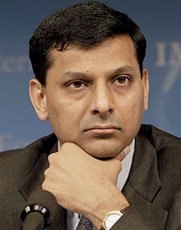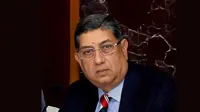RBI leaves rates unchanged, experts see cuts in August
07 Jun 2016
As widely expected, the Reserve Bank of India (RBI) kept its policy interest rate unchanged at a five-year low of 6.50 per cent on Tuesday, but signalled the prospect of a cut later this year if monsoon rains dampen upward pressure on food prices.
 The RBI expressed concern over the slight rise in inflation and some domestic and global upside risks that have sprung up since April.
The RBI expressed concern over the slight rise in inflation and some domestic and global upside risks that have sprung up since April.
The decision was taken at the second bi-monthly policy review for the current fiscal by RBI Governor Raghuram Rajan at its headquarters in Mumbai.
"The inflation surprise in the April reading makes the future trajectory of inflation somewhat more uncertain," Rajan said.
In the bi-monthly policy review on 5 April, Rajan had cut by 25 basis points the repurchase rate, or the short-term lending rate for commercial banks on loans taken from the Reserve Bank to 6.5 per cent from 6.75 per cent. The reverse repurchase rate for short-term borrowings was raised to 6 per cent from 5.75 per cent.
The RBI has also retained growth projection at 7.6 per cent for 2016-17 citing corporate profits and surge in consumption.
The central bank said it would soon review implementation of marginal cost lending rate framework by banks.
It says rising crude prices and implementation of the 7th Pay Commission awards pose upside risks to inflation.
In comments to Reuters, most experts predicted a cut in interest rates further down the line. Marie Diron, senior vice-president, sovereign risk group at Moody's Investors Service, Singapore, said, "Looking forward, we do not expect a significant change in the monetary policy stance. Rather, the transmission of monetary policy will influence India's economic developments and credit profile.
"First, the effectiveness of the monetary policy framework in maintaining inflation at moderate levels could be tested this year. The RBI highlighted today the uncertain trajectory of inflation.
"A renewed sharp depreciation of the rupee, potentially linked to volatility in global financial markets, could also stoke inflationary pressures. Moreover, with details of the implementation of the Pay Commission's recommendation still unclear, the outlook for wage, housing and overall consumer price inflation remains uncertain and subject to upside risks."
Devendra Kumar Pant, chief economist at India Ratings and Research, said, "It is on expected lines and I think it was one of the rare events when everybody was expecting a status quo.
"As of now this does not change our view on future rate cuts. We are expecting one more rate cut this fiscal based on the way things are.
"We still hold our view that there may be another 25 basis point rate cut in this fiscal year."
Rana Kapoor, managing director and chief executive at YES Bank, said, "I foresee RBI's cautious stance giving way to accommodative actions in August, on the back of favourable monsoon outcomes and sustained acceleration of government reforms.
"Despite a compelling case to cut interest rates amidst favourable monsoon outlook, CPI inflation in line with RBI's projected path, government's progressive reforms and fiscal consolidation and the need to nurture growth, RBI has preferred to remain cautious. It appears that the uncertainties on the global horizon with Fed policy overhang and UK Brexit vote tipped RBI's decision in favour of a status quo. With its accommodative stance still in place, I now see high probability of a rate cut in August by at least 50 bps."





.webp)

























